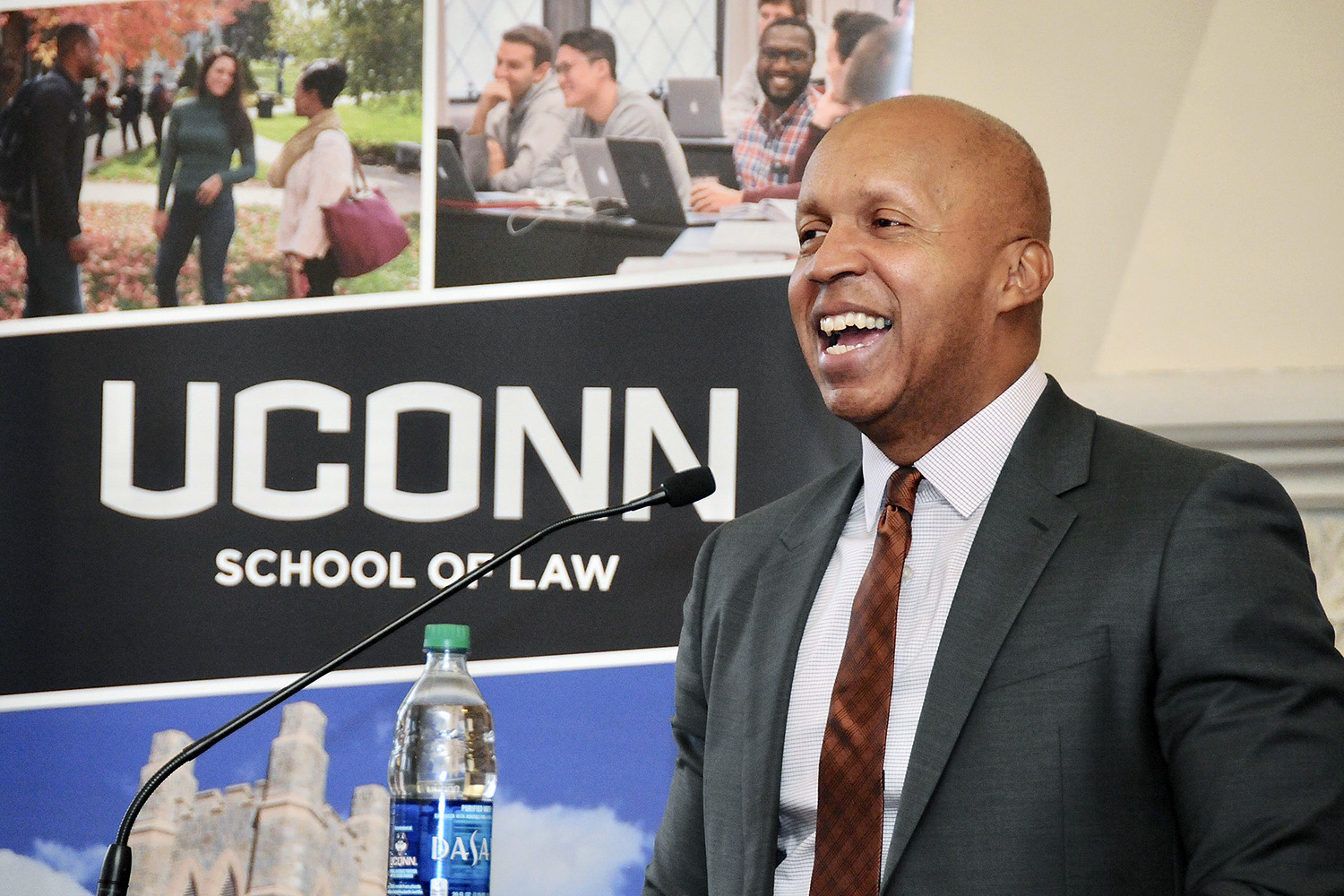The story of how Bryan Stevenson got an innocent man freed from death row will soon be released as a movie, but Stevenson chose a different story to begin a speech as the 2019 Day Pitney Visiting Scholar at the UConn School of Law.
He began with a personal story of racist cruelty from his childhood, a memory that he said is as clear as if it happened yesterday. When he and his sister jumped into a hotel pool on a much-anticipated family vacation, white parents made their children get out of the pool. One father, yanking his son from the water by the arm, called Stevenson a racial epithet.
The way Stevenson and his sister shared that memory changed over the years, he said, and they even tried at times to tell it as if they had ordered the white people out of the pool. But he could not avoid confronting the truth of what happened, he said, and can’t help wondering how those white children, and that white father, remember that day. Or whether they remember it at all.
Stevenson, the founder and executive director of the Equal Justice Initiative, spoke to a capacity crowd of law students, faculty, alumni and other guests in the Reading Room in William F. Starr Hall, with an overflow audience in the William R. Davis ’55 Courtroom watching via a video link.
It’s important, Stevenson said, for lawyers to think about memory and the way people can alter it to avoid painful truths. Lawyers must also have the courage to stand up and accept those truths, he said, whatever they may be.
As a child, Stevenson saw the power that lawyers possess to confront injustice. “I remember when the lawyers came and made them open up the public schools, and the thing that was fascinating to me was that they had this power to protect disfavored people, excluded people, marginalized people that no one else seemed to have.” Because those lawyers came into his community, Stevenson said, he was able to go to high school and then to college and then to law school.
The Equal Justice Initiative, which Stevenson founded in 1989, continues the work of representing people who have suffered injustice in the criminal justice system. It is also committed to confronting the legacy of lynching with the National Memorial for Peace and Justice in Montgomery, Alabama, and with the Community Remembrance Project, which is collecting soil from lynching sites and creating memorials to mark them.
Stevenson recounted a story from one remote lynching site, where an African American woman was digging up soil for the project. A white man drove by and stopped his truck. She was afraid, but shared with him a piece of paper that described the lynching. The man got down on his knees and helped her dig up the dirt with his hands, admitting his fear that his own grandfather might have participated in the lynching.
“It’s only when we tell the truth,” Stevenson said, “that we create the opportunity for the kind of beauty, the kind of justice that our society desperately needs.”
The Day Pitney Visiting Scholar award is presented by the Connecticut Law Review and underwritten by the Day Pitney Foundation. Previous recipients include Lawrence Lessig, Judge Michael Mukasey, Bob Woodward, and U.S. Supreme Court justices Antonin Scalia and Ruth Bader Ginsburg.
After the presentation at UConn Law, Stevenson traveled to the university’s main campus at Storrs, where President Thomas C. Katsouleas and former U.S. Sen. Christopher J. Dodd awarded him and the Equal Justice Initiative the 2019 Thomas J. Dodd Prize in International Justice.



